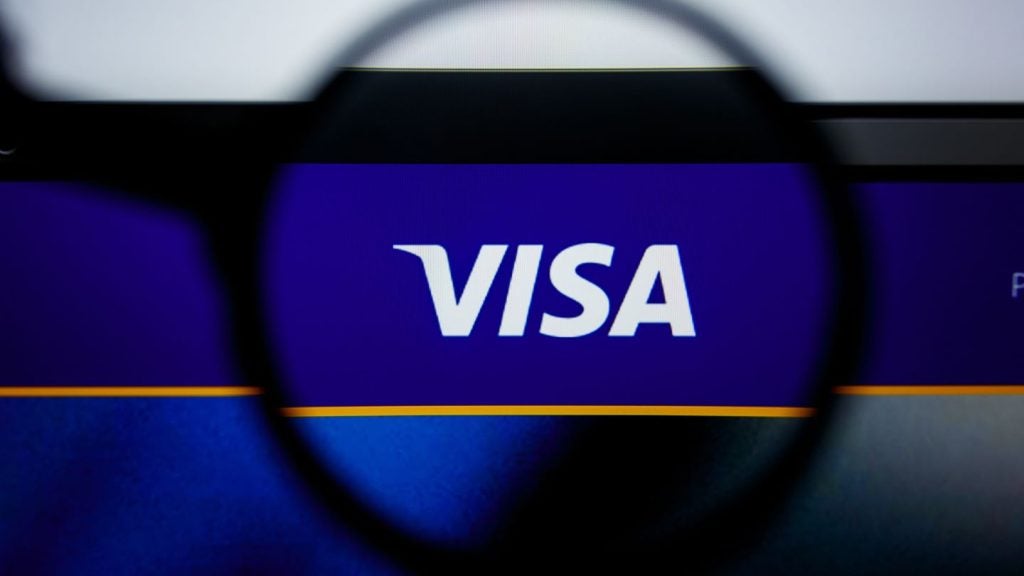Card growth puts Europe in the shade
Turkey’s card market stands out as one of the most
forward-thinking and innovative in Europe. The country’s young
demographic profile also means it is more receptive than most to
payment technology advances, which helps explain the popularity of
contactless and mobile payment initiatives. Victoria Conroy
reports.
A population of 72 million, with 50 percent of the population under
the age of 25, has propelled Turkey’s payment card industry into
the top tier of Europe, and it is now widely regarded as one of the
most innovative on the continent, with the country’s issuers paving
the way in the use of loyalty programmes and chip technology.

Turkey’s payment infrastructure is one of the most advanced in
Europe, with over 1.6 million POS terminals in place, 62 million
mobile phone connections and 22 million internet users. Turkey’s
economy is the sixth-largest in Europe, registering 6 percent GDP
growth in 2008, and the personal consumption expenditure (PCE)
ratio was 23 percent in 2008, helped by long standing availability
of consumer finance in all forms.
How well do you really know your competitors?
Access the most comprehensive Company Profiles on the market, powered by GlobalData. Save hours of research. Gain competitive edge.

Thank you!
Your download email will arrive shortly
Not ready to buy yet? Download a free sample
We are confident about the unique quality of our Company Profiles. However, we want you to make the most beneficial decision for your business, so we offer a free sample that you can download by submitting the below form
By GlobalDataCard usage trends
As of May 2009, there were 60.5 million debit cards in circulation,
according to statistics from the Turkish Interbank Card Centre
(BKM). Debit cards were used in 2008 in order to withdraw a total
amount of TRY149 billion ($96.8 billion) from ATMs in 581 million
transactions.
Debit cards are not widely used for retail POS transactions,
however, accounting for just 1.5 percent of credit card retail POS
volumes as of 2008. Issuers are now making concerted efforts to
drive more transactions through debit cards and are incorporating
cashback and loyalty programmes into their debit card
portfolios.
Credit cards have seen the biggest surge in growth over the last
six years – between 2003 and 2004, credit card numbers jumped from
19.8 million to over 26.6 million. By 2008, the number of credit
cards in circulation amounted to 43.3 million and by May 2009 there
were 43.9 million credit cards in circulation, making Turkey the
fourth-biggest credit card market in Europe.
According to data from Akbank, one of the leading issuers in the
country, there are 20 million credit cardholders in Turkey, meaning
that there is an average of 2.2 cards per person, one of the
highest ratios in Europe. According to data from the Turkish
Statistical Institute and MasterIndex, average yearly spending on a
credit card is $3,300, and the average revolve rate is between 30
and 40 percent. The top six issuers account for 85 percent of the
credit card market in Turkey.
In tandem with the sharp rise in the number of credit cards,
transaction volume has also risen exponentially. In 2002, domestic
credit card transaction value was TRY25.6 billion, but by 2008 this
had risen to a staggering TRY186.5 billion, with transaction
numbers rising from 638 million to 1.6 billion during the same
period. However, CI analysis of the Turkish card market shows that
credit cards are increasingly being used to make ATM withdrawals
(see table overleaf).
Loyalty programmes in the Turkish market
The availability of instalment finance in various forms, including
card products, has helped to drive more non-cash transactions to
the POS channel. Credit card instalment facilities allow consumers
to pay off purchases in fixed instalments. Customers can choose
whether to pay in one go, whether to negotiate a short-term – often
interest-free – instalment schedule, or whether to have a
longer-term instalment agreement paying interest on the
purchase.
The popularity of instalment finance has meant that Turkish
consumers are more interested in the features and services
available via card products, and are not so driven by pricing
issues when selecting a credit card.
This consumer-driven aspect of the market has led to Turkish
issuers consistently reinventing and launching tailor-made
promotions and services aimed at strengthening customer loyalty and
standing out from the crowd in what is already a very competitive
market.
Garanti, the second-largest issuer in the market with 7.5 million
credit cards in circulation, highlights its Bonus Card point-based
loyalty scheme as one of the stand-out success stories in the
marketplace.
Bonus, which has 5.4 million cards in issue, is the largest credit
card loyalty programme in Europe and allows cardholders to
accumulate points for everyday spending, with points redeemable for
merchandise discounts.
The scheme works as a multi-branding proposition, allowing
cardholders to use their card to accumulate rewards through a
coalition of over 1,285 merchant partners representing 191,522 POS
locations.
According to Garanti, the average customer expenditure with Bonus
cards is $260 to $350 per month, while the amount of bonuses
redeemed per month is over $26 million. The average customer uses
the Bonus card nearly 80 times per year.
Nur Olcer, senior vice-president of Garanti Bank Payment Systems’
strategic business development unit, told CI that the Bonus
standard cardholder portfolio has an activation rate of 75 percent.
Garanti has differentiated the Bonus scheme further into ‘Plus’ and
‘Premium’ schemes, with activation rates of 83 percent and 90
percent respectively.
“With sub-licensing of Bonus, there are over 2.1 million additional
Bonus cards in partnership with other brands,” she added.
In May 2009, Garanti teamed with Migros to launch the new ‘Money’
credit card and loyalty programme, a multi-branded, brand-specific
and contactless-enabled loyalty and payment proposition which
combines Bonus infrastructure and Migros Club card features to
provide additional benefits to customers. The Money card will allow
customers to earn Bonus points for all their purchases made at
300,000 Bonus programme partners and abroad.
Technology innovation
Turkey was one of the first countries in Europe to begin the
migration to EMV technology and besides the plethora of advanced
loyalty programmes now available thanks to the introduction of EMV,
Turkey has also been the launchpad for some of the most advanced
payment applications in recent years, including contactless and
mobile payments.
Both Visa’s payWave and MasterCard’s PayPass propositions were
first launched in Turkey in both merchant and transit sectors
before rolling out to the rest of Europe. More recent advances
include the introduction of contactless stickers which can be
attached to mobile phones, MP3 players or other portable devices
capable of interacting with contactless readers.
In 2008, Garanti together with telco Turkcell launched a
contactless sticker proposition, known as Bonus Trink, to bring
mobile wallet services to the Turkish market. It followed this up
with the launch of an MP3-compatible version of the Bonus Trink
sticker, the world’s first sticker-shaped contactless credit card,
and also introduced Bonus Trink in taxi cabs in Istanbul.
Regulatory issues
In mid-2008, Turkish regulators, responding to a consumer complaint
over card usage fees, ruled that such fees should be abolished on
the basis that they were “unjust”. The ruling by the country’s 13th
Chamber of the Supreme Court of Appeals threatened to take a
significant bite into the estimated TRY1.5 billion that Turkish
banks earn annually from such fees – typically, banks charge fees
of between TRY20 and TRY50 per card as an annual usage fee,
depending on the type of card and features offered.

With Turkish cardholders holding on average 2.2 cards per person to
take advantage of different loyalty programmes and services,
various fees have to be paid for each card, and over the past
couple of years consumer groups have cranked up the pressure on
issuers to reduce the level of fees they charge.
The Supreme Court’s ruling came on the back of concerted regulatory
intervention in 2007 over the level of interest rates that Turkish
credit card issuers could charge, and these factors are now
combining to place what could be transformational pressures on the
country’s credit card industry, which has been used to a period of
sustained growth and profitability. According to Garanti Bank,
credit card income at Turkish banks dropped by 50 percent after
limits were placed on interest rates.
In June 2009, the Turkish government announced new regulations for
consumer credit cards focusing on uncollected card debt, minimum
payments and annual fees. According to the government, nearly 1
million credit cardholders would benefit from the new regulations,
with the amount of unpaid credit card debt growing to TRY3.1
billion by April 2009.
One of the regulations is that credit cards with a limit of
TRY3,500 or less will have annual fees capped at TRY35, while the
Banking Regulation and Supervisory Agency (BDDK) may increase
minimum payments up to 30 percent of the debt due, or reduce it to
10 percent of the total card debt. According to the government, the
new regulations will apply to credit card debt due as from 31 May
2009.

Issuers
Garanti Bank
Garanti has the second-largest credit card business in Turkey, with
7.5 million credit cards and 5.1 million debit cards in circulation
as of 2008, $5.1 billion in credit card receivables and $28 billion
of charge card volume.
Garanti has been one of the trend-setters in the Turkish market –
in 2000 it introduced Bonus Card, Turkey’s first chip-based
multi-branded credit card, and in 2006 it launched Bonus Trink, a
PayPass-enabled contactless credit card. Aside from Bonus, Garanti
also offers the Flexi, Shop&Miles and American Express
propositions. Shop&Miles now has over 400,000 credit cards in
circulation, making it one of the most popular frequent flyer
programmes in Europe.
In its 2008 annual report, Garanti announced that Shop&Miles
would be enhanced with new features in 2009, with the bank offering
two credit cards within the same account via the Shop&Miles
card with the American Express logo, and incorporating contactless
functionality. In the last quarter of 2009, the Amex-branded
Centurion black card will be added to Garanti’s portfolio, also
enabled with contactless functionality.
In order to increase the use of debit cards in shopping, Garanti
plans a major push in promoting debit cards to customers – it
recently announced that it would be adding contactless
functionality to both debit and prepaid cards. In 2008 Garanti’s
debit card retail volume increased by 62.7 percent, with spending
per debit card reaching TRY170.
The company has a market share of 22.3 percent in acquiring, a 26
percent rise from 2007 to TRY38.3 billion.
Akbank
Akbank is also one of the pioneers of the Turkish payment card
market, having in 2001 launched the Axess credit card. This was
followed up in 2007 with the launch of the Wings credit card
incorporating an air miles loyalty programme.
In 2008, Akbank launched the co-branded Fish credit card in
conjunction with retailer Boyner Holding, utilising Boyner’s sales
force across over 300 retail locations, with the expectation of
gaining 1.5 million new customers. Also in 2008, Akbank introduced
new and exclusive features for its card portfolio, including
request instalments, enabling customers to pay for lump sum
instalment transactions. Its long-running Axess programme was
enhanced in July 2008 with the launch of the Citi Axess card as
part of a strategic alliance between Akbank and Citi.
As of the first quarter of 2009, credit cards accounted for 10
percent of Akbank’s managed loan portfolio, unchanged from 2008.
Net fee and commission income growth (amounting to TRY306 million
in the first quarter of 2009 compared to TRY244 million in the
year-ago period) came mainly from growth in its credit card
portfolio, which accounted for 25 percent of fee and commission
revenue.
As of the first quarter of 2009, credit card loans amounted to
TRY4.6 billion, compared to TRY3.8 billion in 2007, while issuing
volume was TRY5.8 billion in the first quarter of 2009, compared to
TRY5.1 billion in the year-ago period. The number of cards in
circulation as of 2008 totalled 4.5 million.
Among its technology innovations in 2008 was the repositioning of
its ATMs to accept credit card and consumer loan applications for
both customers and non-customers of the bank, prompting over
450,000 loan and credit card applications. It also introduced
multimedia POS terminals enabling customers to apply for credit
cards and credit limit increases.
In the debit card space, Akbank’s ‘Neo’ loyalty programme offers
cardholders cashback at participating merchants, personalised card
options and setting transaction limits. In 2008 Neo helped Akbank
gain an increase of 51 percent in debit sales turnover.
Yapi Kredi
Yapi Kredi pioneered the use of revolving credit cards in Turkey in
1988 and was also the first to launch a credit card loyalty point
system in 1991. The total number of cards issued by Yapi Kredi in
2008 reached 7.8 million and total credit card transaction volume
reached TRY40.3 billion. Credit cards contribute 25 percent of the
bank’s total revenues and 9 percent of total customer business.
Credit cards make up nearly 50 percent of Yapi Kredi’s fees and
commission income, and 13 percent of total credit card fees are
annual fees.
In 2007 it restructured its ‘World’ credit card platform to come
under a single brand and card, and introduced new product features
and services such as allowing cardholders to incorporate services
of their choice into their chosen credit card. In 2008, Yapi Kredi
launched the ‘World Share’ programme, Turkey’s first donation
platform that accepts credit card points and emphasises the
contribution of credit cards to social responsibility projects.
Yapi Kredi, which as of 2008 had over five million of its
own-branded World cards in circulation, also allowed other partners
to issue World-branded cards, bringing the total number of cards in
force to nearly 11 million. In September 2008, for the first time,
Yapi Kredi began offering instalments for purchases made abroad
using a World card.
World Play Club, which targets university students and young
professionals, was launched in May 2008. World Play Club members
receive both Worldpoint and free Turkcell minutes for their
purchases with Play Club World cards.
In May 2009, Yapi Kredi’s board of directors decided to sell a 100
percent provisioned non-performing loan portfolio in credit cards
and individual loans to Girisim Varlik Yönetimi in return for
TRY26.5 million.
IsBank
IsBank’s Maximum credit card programme achieved 24.8 percent growth
in 2008, bringing the number of cards issued to over 5 million,
along with a 33 percent increase in transaction volume to TRY26.4
billion, and credit card balances of TRY4.5 billion, a rise of 35
percent compared to 2008.
IsBank repositioned Maximum in 2008 with new advertising campaigns
and launched promotions with merchant partners targeting inactive
cardholders, along with a portfolio resegmentation project to
improve its profitability return ratio – the bank now has 14
different products for different customer segments. IsBank also
developed and launched instalment-based cashback capabilities at
the POS on credit cards with fixed interest rates and instalments,
and rolled out instant limit approvals.
The Maximum credit card was also launched in a contactless version
and a virtual version for use on the internet. IsBank also expanded
its market share in prepaid transit and toll cards and automated
pass systems for which the bank intermediates collection of highway
and bridge tolls.
Halk
In its 2008 annual report, Halk, one of Turkey’s smaller issuers
focused on the small and medium-size enterprise sector, stated that
in partnership with HSBC its range of credit cards were enhanced
with features of the Advantage loyalty programme, with the bank
launching the transparent HalkCard Advantage credit card in August
2008.
Two versions of these cards, namely HalkCard Advantage KGS and
HalkCard Advantage Business KGS, can be used for highway and bridge
toll payment. Furthermore, cooperation was established with energy
giant Shell, thereby adding the KGS card-based pass system feature
to Shell Club Smart Card.
In the first half of 2008, Halk completed the preparatory work for
the transition of its member merchants to Advantage co-branding;
new POS equipment possessing competitive technological features
were purchased taking into consideration that the member merchant
network will expand. Similarly, appropriate merchants were selected
within the frame of Advantage credit card programme and member
merchant agreements were signed.
Finansbank
In 2008, CardFinans reported that the number of credit cards in
circulation had reached just under 3.5 million. Total sales
increased 52 percent from TRY9.3 billion in 2007 to TRY14.1 billion
in 2008, while outstanding balances rose 35 percent from TRY2.6
billion to TRY3.5 billion in the same period. Credit cards make up
18 percent of its loan portfolio.
CardFinans GO, a credit card targeting young adults between the
ages of 18 and 25, was launched in April 2008. GO’s attributes were
designed to match the needs of young people.
The most important advantages provided by GO are the
free-of-interest shopping and cash advance option of up to TRY200
and the additional 2 instalments option for all shopping from
CardFinans merchants.
As of end of December 2008, 66 branches were provided with the
means to issue cards through the ‘CardFinans in 15 Minutes/Instant
Card’ instant issuance programme. The number of Finansbank POS
terminals rose to 126,909, or 6 percent up on 2007. The total
number of merchants exceeded 100,000.








